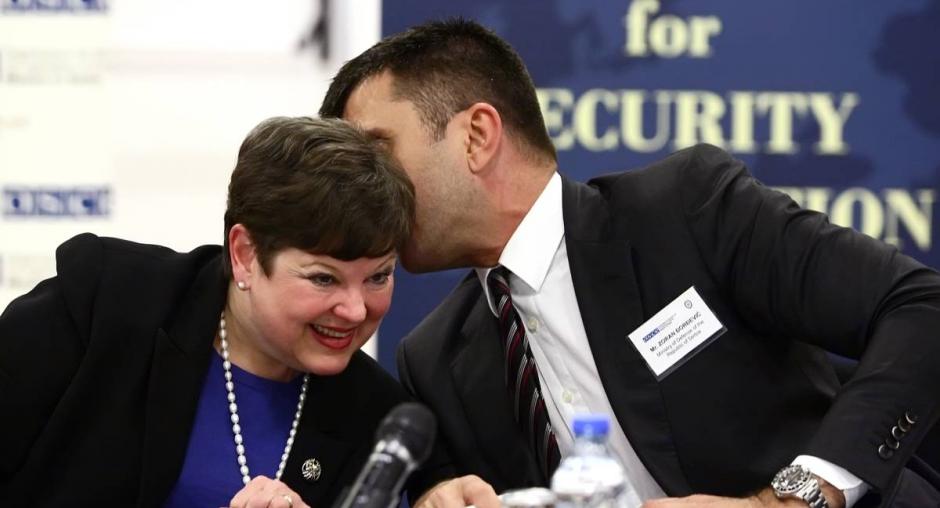OSCE, Serbian Defence Ministry promote OSCE Code of Conduct on politico-military aspects of security

BELGRADE, 28 March 2014 – Promoting co-operative behaviour and enhancing norms of responsible conduct in the field of defense and security throughout the OSCE region was the focus of a three-day workshop that ended today in Belgrade.
The workshop marks the 20th anniversary of the adoption of the OSCE Code of Conduct on Politico-Military Aspects of Security, a landmark document in security sector governance. The Code obliges all OSCE participating States to provide for democratic oversight of their armed, internal, para-military and intelligence forces and police. States must also ensure that their armed forces remain politically neutral and respect human rights.
The event was organized by the OSCE Mission to Serbia, in partnership with the OSCE Secretariat Conflict Prevention Centre, and the Serbian Defence Ministry.
“Democratic political control of armed forces, such as parliamentary oversight, is an indispensable element of stability and security. Through the OSCE Code of Conduct, OSCE states have committed themselves to the democratic control of their armed forces and to other important principles of inter-state behaviour,” said the Deputy Head of the OSCE Mission to Serbia, Paula Thiede. ‘In that sense the Code of Conduct is an important conflict prevention mechanism,” she added.
Zoran Djordjevic, the State Secretary of the Ministry of Defence of the Republic of Serbia said: “Serbia will be dedicated to working on the Helsinki + 40 process as the future Chairman-in-Office of the OSCE. The Code of Conduct on politico-military aspects of security, as one of the vital and the most comprehensive documents in the OSCE politico-military dimension, contains specific instruments on norms and standards on democratic control of armed forces. Serbia is committed to full implementation of the Code,” he added.
The workshop gathered some 50 participants, including representatives of OSCE field operations, Geneva Centre for the Democratic Control of Armed Forces (DCAF), the OSCE Office for Democratic Institutions and Human Rights (ODIHR), RACVIAC Centre for Security Co-operation, and the Serbian Defence and Foreign Affairs ministries.
